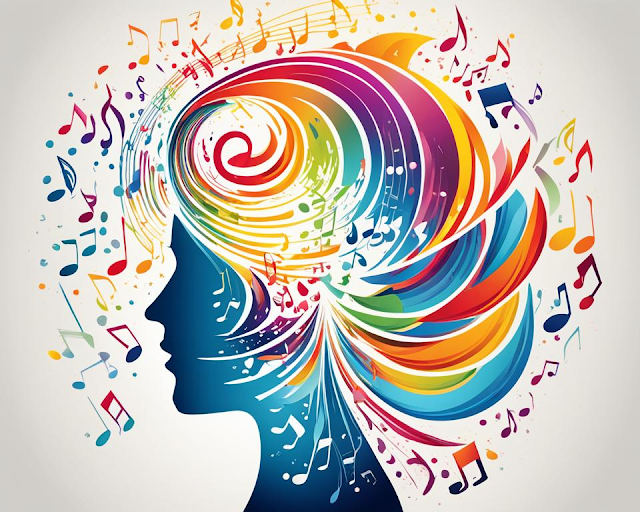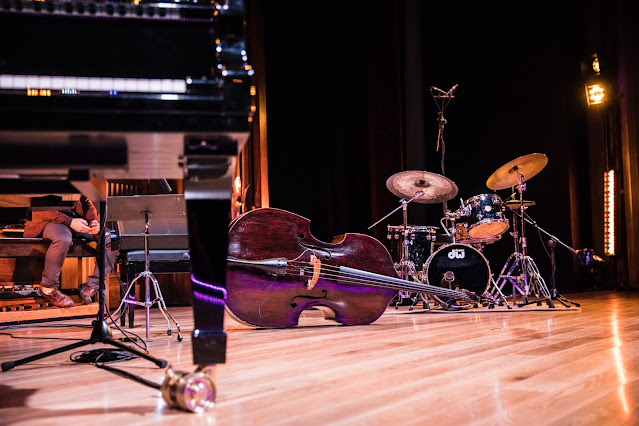The Psychology of Music
The interplay between sound and psyche is an endlessly fascinating topic within both the scientific community and the public at large. At the heart of this intersection lies the study of musical cognition, a field that sheds light on the effects of music on the brain and our broader psychological functioning. It's a realm where intricate melodies and complex harmonies do much more than please our ears; they invoke a rich tapestry of mental processes, from the deeply emotional to the rigorously analytical.
As humans, our engagement with music is as natural as breathing, but the auditory processing involved is incredibly intricate. Whether it's the cheerful strumming of a guitar or the soul-stirring sweep of an orchestral piece, music has the remarkable ability to captivate our attention and stir a vast array of emotions. By examining the components of music through the lens of psychology, we unearth the profound impact it has on our brains, our hearts, and the invisible threads that connect them.
Key Takeaways
- Understanding musical cognition is key to exploring how music impacts our mental processes.
- Effects of music on the brain reveal connections between auditory stimuli and emotional, cognitive, and social functions.
- The study of music and psychology spans across disciplines like cognitive psychology, neuroscience, and music theory.
- Modern research continues to untangle the complexities of auditory processing and its role in shaping our musical experiences.
- Insights from historical perspectives complement contemporary findings in the rich inquiry into the psychology of music.
- Whether as a tool for therapy or a subject of academic study, the impact of music on our psyche is a universal point of intrigue.
Exploring How Music Influences Emotions
The profound impact music has on human emotion underscores its significance in our daily lives as well as in therapeutic contexts. Emotional stimulation by music can lead to a rich spectrum of psychological reactions, varying from joy to sadness, calmness to excitement. This connection between music, the brain's reaction to it, and subsequent emotional changes is the cornerstone of music therapy, leveraging the universal language of music to access and influence emotional states across different cultures.
https://www.youtube.com/watch?v=HRE624795zU
Emotional Responses to Melody and Rhythm
Music's composition is a delicate interplay of melody and rhythm, each with the power to evoke distinct emotions. When melody and rhythm harmoniously combine, they can serve as a catalyst for emotional stimulation, eliciting complex feelings and mood shifts. Insightful music therapy leverages these elements, tailoring them to therapeutic needs, creating pathways for communication and emotional expression where words may fail.
Neurological Pathways Engaged by Music
Scientific exploration has begun to detail the brain's intricate response to music, highlighting how various neural networks collaborate to process and react. The emotional effects of music are pegged to the activation of the limbic system, a central area of the brain involved in mood regulation and emotional experiences. The intricate patterns of neurological engagement suggest that music therapy may recalibrate our emotional balance and mental health.
Cross-Cultural Similarities in Emotional Music Perception
The universal language of music transcends cultural divides, pointing to a shared human experience when it comes to emotional stimulation by music. Interestingly, certain musical structures appear to commonly evoke similar emotional responses across various cultures. This phenomenon deepens the therapeutic potential of music, providing a cross-cultural bridge to foster empathy and understanding.
| Emotional Response | Music Elements | Cultural Universality |
|---|---|---|
| Happiness | Upbeat melodies, Major keys | Widespread |
| Sadness | Slow tempos, Minor keys | Common in varying forms |
| Excitement | Fast rhythm, High volume | Often linked to dance music globally |
| Calmness | Soft harmonies, Gentle pacing | Regularly associated with lullabies worldwide |
Music and Cognitive Performance
The connection between music and memory has intrigued scientists and musicians alike for decades. Recent studies continue to explore the correlation, providing insights into how tunes could aid in cognitive tasks. The concept popularly known as the Mozart effect suggests that listening to music, particularly compositions from classical maestros like Mozart, may boost mental capabilities—a theory that resonates with many seeking to enhance concentration through background music.
However, the conversation around music’s role in cognitive performance is nuanced. Educational environments have seen a rise in integrating music into learning sessions to stimulate memory retention and concentration. But does background music always contribute to better focus, or could it sometimes serve as a distraction? Let’s delve into some of the studies and arguments:
| Study | Music Type | Effect on Memory | Effect on Concentration |
|---|---|---|---|
| Classical Tunes & Learning | Classical | Increased retention of material | Improved focus on complex tasks |
| Rhythmic Reverberations | Rhythmic (Non-lyrical) | Enhanced memory in repetitious activities | Varied results; disruptive for some individuals |
| Lyrical Distraction? | Lyrical songs | Potential for mixed outcomes; context-dependent | Often reduced in task performance requiring linguistic processing |
| ‘Mozart Effect’ Reviewed | Classical (Mozart) | Temporary boost in spatial-temporal reasoning | Increased performance in spatial tasks |
The table above provides a snapshot of diverse research outcomes. Environments where background music and concentration need to harmoniously coexist can benefit from such studies, tailoring musical choices to the tasks at hand. When speaking of the Mozart effect, it's important to discern that while there is evidence of music's influence on cognitive functions, the extent of its impact, and its longevity, may not be as universal as once thought. Music’s role as a cognitive enhancer appears to be highly individualistic, inviting more nuanced applications and further investigation.
With this knowledge, educational institutions and workplaces could foster environments where music is a strategic partner in learning and productivity, carefully selecting music that aligns with the goals of the task. As the symphony between music and memory continues to unfold, it is clear that the quest for understanding our brain's symphony is far from over.
The Psychology of Music and Social Connection
Our auditory experiences, particularly through music, are not only personal journeys but also collective ones that bridge human connections. The psychology of music extends beyond cognitive processing to the heart of social interaction. Music in social settings can lead to profound communal experiences, underscoring the value of shared melodies and harmonies in forging powerful, emotional bonds among individuals. From group harmonization to public celebrations, the role of music as a social conduit is seen in various aspects of life.
Music as a Tool for Social Bonding
Social scientists and psychologists have long recognized the role of music as a catalyst for bringing individuals together. Communal music-making activities like choral singing, drum circles, or impromptu jam sessions offer participants a sense of inclusion and belonging. This sense of unity is not just perceived; it is also ingrained in our neurochemistry. The act of engaging with music in a group setting triggers the release of oxytocin, broadly known as the 'bonding hormone', which fosters trust and the establishment of closer relationships. The phenomena of music-induced cohesion illustrates how rhythm and harmony can become instruments of synergy within a community.
Group Identity and Music Genres
Different music genres carry specific connotations and are often adopted as badges of identity by various subcultures. Punk rock, hip-hop, classical, jazz, or electronic music - each of these genres not only represents a collection of musical attributes but also embodies the values, attitudes, and norms of distinctive social groups. They act as aural flags around which people rally, reinforcing group identity and even delineating cultural boundaries. Music genres serve as a palimpsest, a layered record that reflects the evolving narratives of the communities they represent.
The Role of Music in Rituals and Celebrations
In rituals and celebrations, music takes on a particularly significant role as it encapsulates shared histories and reinforces social bonds. The participatory nature of music during weddings, funerals, or religious ceremonies amplifies collective sentiments and supports the emotional fabric of the event. It transcends the mere act of listening, compelling participants to engage with the spirit of the occasion. In these settings, music becomes a uniting voice that resonates with the depth of communal experience, amplifying memories and fostering a shared narrative that endures long past the last note.




Comments
Post a Comment